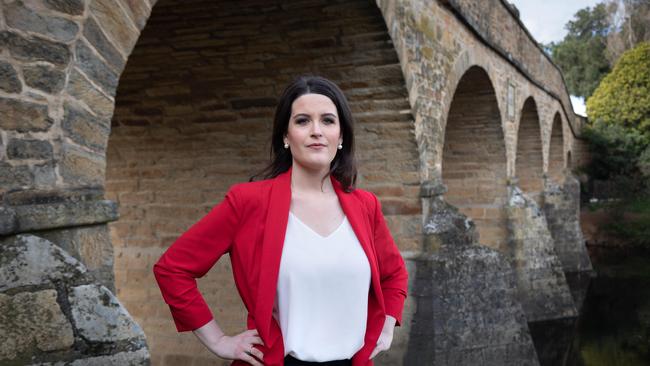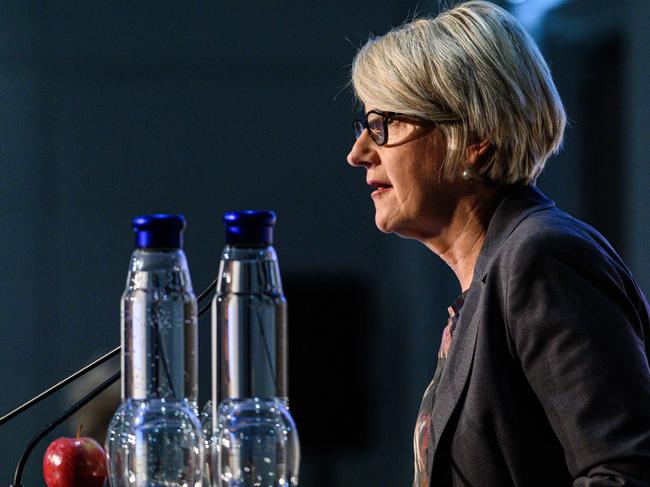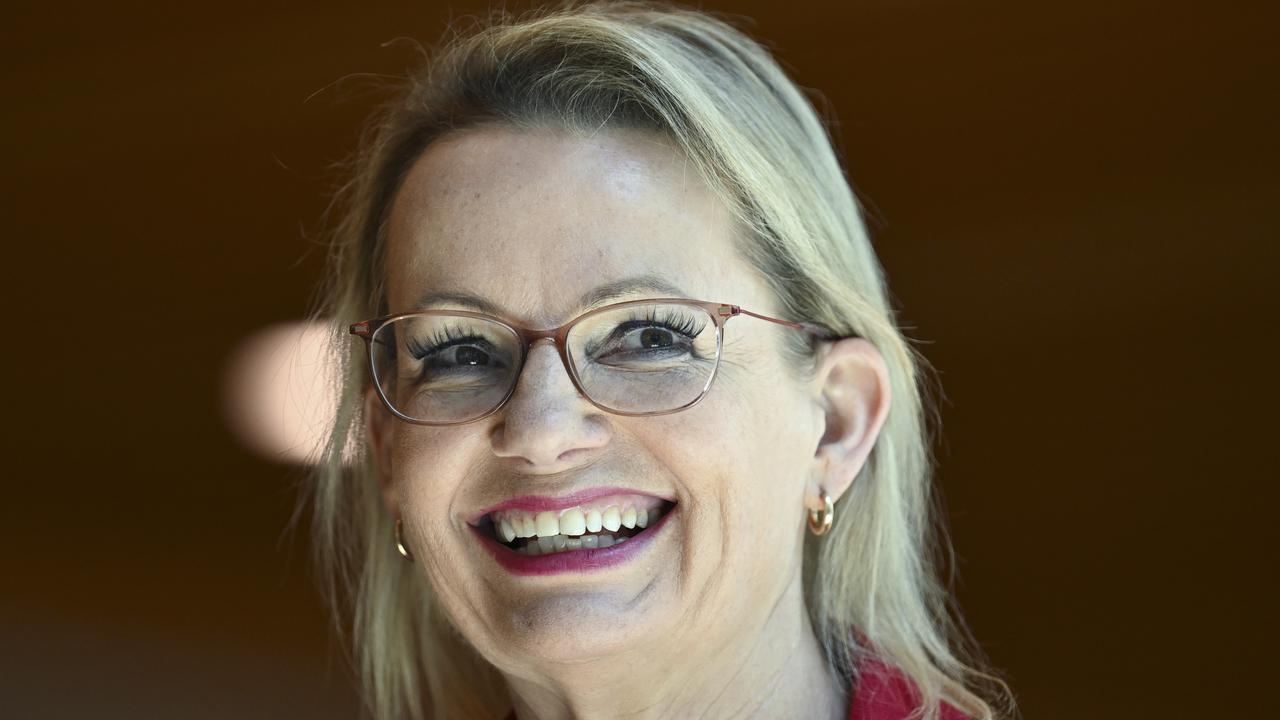States ‘kill off’ review of teenage gender clinics
A new national approach to treatment of minors distressed over gender is in doubt after an official review was quietly wound up.

The promise of a new, national approach to treatment of minors diagnosed with gender dysphoria appears to be in doubt after an official review was quietly wound up without collecting any patient data.
“There has been a huge increase in children being treated by gender clinics but, either through incompetence or by design, the states’ top health bureaucrats have no data to explain this trend,” said Tasmanian Liberal Senator Claire Chandler.
Data collection by specialised gender clinics in public children’s hospitals — the country’s three large “gender affirming” clinics are in Victoria, Queensland and Western Australia — was found to be inadequate after an audit and review last year, The Australian understands.
There is fierce international debate about how to respond to an exponential surge in distressed teenagers, mostly girls, seeking puberty blockers to halt unwanted sexual development followed by lifelong hormone drugs to mimic the desired body of the opposite sex.
In December last year Senator Chandler wrote to the Health Chief Executives’ Forum, which brings together federal, state and territory department heads, and asked for the public release of data on the treatment of children and adolescents with puberty blockers and cross-sex hormones so that gender clinic trends could be openly debated.
“There is a significant public interest in understanding the extent to which children and adolescents experiencing gender dysphoria are being prescribed irreversible medical treatments,” she wrote.
Interview: Tavistock clinic whistleblower and psychiatrist David Bell
In her letter, Senator Chandler said Australia should not repeat the mistake of the UK Tavistock gender clinic, which was rebuked by the English High Court for a “surprising” lack of basic data and investigation into what was happening with patients, including a suspected disproportionate number with autism.
In their December ruling, the judges held that children under 16 would have “enormous difficulties” giving informed consent to potentially momentous treatment with puberty blockers, which they described as “experimental” because the treatment was supported by such meagre evidence.
The Tavistock called an immediate halt to any new blockers or hormones for under-16s, which now require approval by a judge. The clinic’s court appeal against the ruling is to be heard on June 23-24.
The gender clinicians group the Australian Professional Association for Trans Health has claimed puberty blockers are not experimental but “a reliable (medical) tool”.
AusPATH argues that making it difficult for under-16s to get these drugs is “extremely harmful for trans youth (because) many of the irreversible physical changes of (unwanted) puberty are well under way by the age of 16”. Gender clinics say their medical treatments can be “lifesaving”.
In February HCEF chair Elizabeth Koff, who is secretary of NSW Health, wrote back to Senator Chandler, telling her the forum had decided not to “progress” the review of gender clinic treatment referred to it by federal Health Minister Greg Hunt in May last year.
Ms Koff said the forum had asked those states with specialist gender clinics what data they collected and whether there was any long-term follow-up of patients. Data collection was found to be patchy with gaps and inconsistencies, The Australian understands.
This newspaper has published some data obtained under Freedom of Information law but there is a lack of detail and clarity.
In new FOI data, the Queensland Children’s Hospital gender clinic had a total of 644 patients in September last year, 30 per cent more than in 2018. But a reported decline in new patients starting puberty blockers appears misleading because the clinic had no data for patients who filled their prescriptions outside the hospital pharmacy.
In 2019, the hospital told a worried member of the public it kept no data on how many female-born patients given puberty blockers were autistic. The clinic is understood to have begun a new data reporting system last year which it claims more accurately tracks the progress of patients.

The health bureaucrats’ forum seems to have collected no data itself, and cited confidentiality in refusing to say what information it had received in response to its 2020 audit questions on data collection, how referrals worked, what clinic services were offered and what treatment guidelines were used.
In her reply to Senator Chandler Ms Koff said NSW and Victoria, together with “other interested institutions”, would work outside the forum to develop a new “service model” for care and treatment of under-18 gender dysphoria.
Senator Chandler told The Australian the Koff letter “clearly indicates one or more states have killed off the opportunity for openness and transparency about how states are managing this public health issue”.
In February Victoria became the third jurisdiction to criminalise therapy deemed to attempt to “convert” someone’s self-declared “gender identity”. The legislation gives a green light to the medicalised gender change model of children’s hospital gender clinics.
The Victorian branch of the Royal Australian and New Zealand College of Psychiatrists warned the new law was so broad and punitive it could end up denying legitimate therapy to vulnerable patients.
Senator Chandler said that given this “ideological” approach by Victoria she failed to see how that state could “play a key role in developing an evidence-based model of care for children and adolescents experiencing gender dysphoria”.
Victoria is seen as Australia’s leader of the “gender affirming” medical model, while NSW is regarded as more cautious. Health ministries in Queensland and WA would not say when asked by The Australian if they would join NSW and Victoria in trying to develop a nationally consistent treatment approach with better data collection.
On Monday a Victorian government spokeswoman said the state offered “quality care” and would “continue to work with the commonwealth and other states (plus AusPATH and with input from ‘people with lived experience’) to progress a clinician-led and evidence-based service model”.
NEW: Tavistock puberty blocker study published after nine years https://t.co/wOdIjkZpE9
— Hannah Barnes (@hannahsbee) December 11, 2020
In November 2019, following news reports in The Australian, NSW Health launched its own independent review “of all international, peer-reviewed material reporting on the care of trans, gender diverse and non-binary children and adolescents up to 18 years”, a departmental spokeswoman said.
The NSW government has made no public announcement about this review which finished last year, but it is expected to release details of “service improvements” as it puts them into effect in 2021-22.
Asked about the forum’s handling of the review, Mr Hunt’s department stressed that states and territories had constitutional responsibility for public hospital gender medicine and were “best-placed to undertake the ongoing development of an evidence-based national approach”.
When he gave the forum the job last year he said it was “the most appropriate and best qualified body” for the review, which he expected to lead to “consistent, high-quality, evidence-based, multi-disciplinary health care in every jurisdiction”.
Mr Hunt put special emphasis on the need for “strong and balanced counselling and safeguards, workforce standards, monitoring of practices, and monitoring of long term health and wellbeing outcomes”.
He had earlier ruled out a national inquiry into gender clinics last year after the Royal Australasian College of Physicians, which had promoted these treatments, claimed the media and public attention of an inquiry would be too dangerous for young patients.
The Australian sought comment from Royal Children’s Hospital Melbourne, its research collaborator the Murdoch Children’s Research Institute, AusPATH, and health ministries and specialised gender clinics in Victoria, Queensland and WA.



To join the conversation, please log in. Don't have an account? Register
Join the conversation, you are commenting as Logout